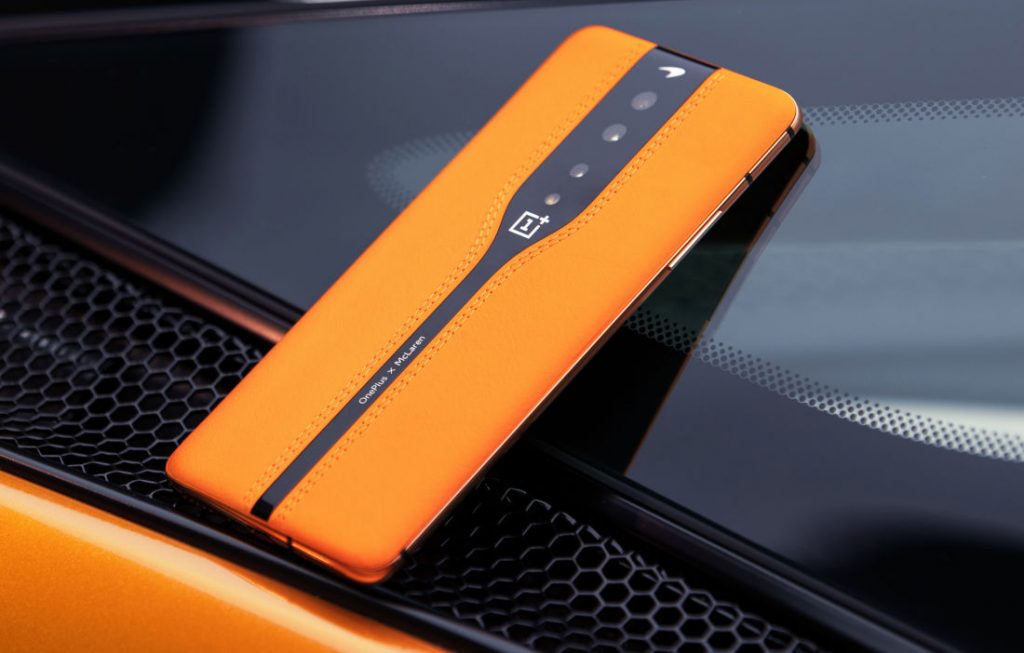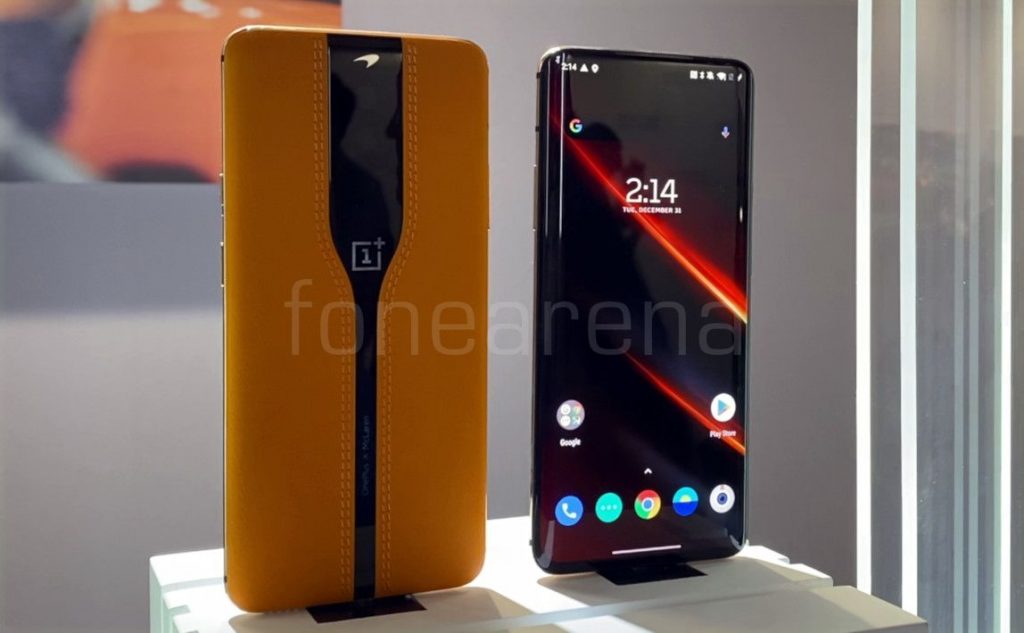

After teasing the phone, OnePlus has officially announced OnePlus Concept One, the company’s first concept phone at CES 2020. This is the first phone to use color-shifting glass technology (electrochromic glass technology), allowing it to change transparency and giving it an ‘invisible camera.’, says the company. It has partnered with McLaren for the third time, and the design of the phone draws inspiration from the McLaren’s design ethos and approach.


Features of OnePlus Concept One
- The glass of the phone uses organic particles to create changes in transparency so that the glass covering the camera lenses can shift in an instant from opaque black to entirely clear. The glass also provides a practical benefit, doubling as a built-in polarizing filter for the camera that allows users to achieve sharper, more finely detailed shots under strong light.
- It draws inspiration from similar technology used in McLaren’s 720S Spider luxury sports car, which features a retractable hard top glazed with an electrochromic glass panel that can rapidly switch between tinted and transparent states.
- The design integrates both glass and leather, using the same luxury trim specially tailored for McLaren’s supercars, in the iconic McLaren papaya orange – a tribute to McLaren Racing’s history and seen on the current McLaren Racing Formula 1 car.
- Although electrochromic glass has already been put to use in some limited applications in cars and planes, miniaturizing the technology for use in phones took some extraordinary work on the part of OnePlus’s R&D team.
- Electrochromic glass is usually composed of two panels of glass with a color-shifting material in between them. For the OnePlus Concept One, OnePlus managed to achieve something far thinner than the industry average. Here, the glass panels are just 0.1mm each, for a combined total of only 0.35mm. That’s as thin as a display glass protector film.
- The OnePlus Concept One takes a mere 0.7s for the glass to transition from solid black to fully clear, faster even than the camera itself takes to fully activate. That is the fastest speed yet achieved in the industry, and it uses almost no power. The OnePlus team spent nearly eight months and tested more than a hundred different options before settling on the best solution for looks, speed, and power consumption.
- The leather covering across the back of the phone creates a sense of lightness, both visually and tactilely.
The OnePlus Concept One is currently just a proof of concept. The company says that in order to make it potentially ready, it would need a large amount of testing and verification still and that would be across the area of device durability.
Pete Lau, CEO and Founder of OnePlus, said:
This concept phone is a significant experiment into the future form of smartphones. OnePlus started this initiative with the goal of bringing the ‘burdenless’ user experience to the next level. The invisible camera stands as a new form of camera design, one that spares the user from the compromises of current camera layouts. The rear camera lenses are hidden by the dynamic electrochromic glass and only become visible when the camera is in use. This optimal solution is what OnePlus calls ‘Electronic CMF’—a new approach in industrial design. This is just the beginning as we explore additional possibilities in the future.
Jo Lewis, Colour and Materials Design Manager at McLaren Automotive, said:
At McLaren we select the best quality leathers produced in the UK; it’s a material that exudes luxury and we are keen to offer our expertise in the design of this OnePlus concept device. The soft grained semi-aniline leather gentle to the touch and its natural grain has a beautiful silky feel. Our design philosophy at McLaren embraces the natural features of the leather through its subtle grain variations, giving each car its own unique character – which is echoed in this OnePlus concept device.
